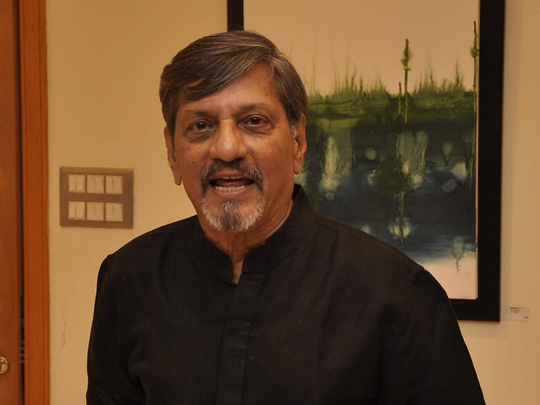
Indian producers confuse lobbying with under-the-table deals and seem incapable of launching vigorous but ethical campaigns to win over members of the Academy of Motion Pictures Arts and Sciences, Amol Palekar, chairman of the jury to select India’s Oscar entry, has said.
Palekar, a director, made the candid observation in a newspaper interview when asked to explain why one of the world’s biggest film industries fared so badly at the Academy Awards year after year.
Film Federation of India (FFI), entrusted by the Information and Broadcasting Ministry to pick a film to represent India, appointed a 17-member jury led by 70-year-old Palekar in the run-up to the 88th Academy Awards, which will be held on February 28, 2016, in Los Angeles.
After the September 12 deadline for receiving nominations, screenings for the jury will be held in Hyderabad so that it can zero in on one submission to represent India. The official entry must be sent to the Academy by October 1.
The outspoken chairman told The Times of India: “In Indian parlance, lobbying means under-the-table activities. But in America lobbying is legal, though one has to follow certain rules and regulations. As filmmakers, we don’t know how to lobby properly. We have to learn the rules of approaching the jurors, organising screenings, etc.”
Palekar said that a lot needed to be done after India’s entry was finalised. “The director and the production house have to take things forward by reaching out to those members of the Oscar jury who will ultimately vote.
“In one particular case, India’s entry was screened for the Indian diaspora with great fanfare and everyone said that the film is worthy of an Oscar. But the reality is that the Indian diaspora doesn’t decide the fate of the film at the Oscars.”
Palekar also lamented that producers simply didn’t do their homework resulting in good films falling by the wayside in the final round.
Citing an example, he said: “The rule says that the exact version of the film that is released in India, must be sent to the Academy. There is also a rule that you can send two versions, one of them smaller and slicker, to suit western taste. But not many filmmakers know that the shorter version too must be released in India before it is sent for consideration.
“As production houses are in the dark about these finer aspects, they are not able to do well at the Oscars.”
Filmmaker Goutam Ghosh, who headed India’s Oscar jury in 2013, told tabloid! that while he agreed with Palekar’s remarks, other factors went against India at the Oscars.
“It’s hardly a secret that our producers lack the push and wherewithal to market a film effectively in America. But what’s even more galling is that hundreds of non-UK-USA films fight over a lone Oscar for the Best Foreign Film.”
“It seems that out of compassion, America has set aside just one Oscar for the whole of Europe barring UK, Asia, Africa and Latin America. This is so grossly unfair.”
According to Ghosh, the Academy should introduce a system of proportionate representation in nominations for the Best Foreign Film category.
“At present, each country sends one entry. So Poland, which makes 20 films a year, sends one film. And so does India, which makes 700. I personally think that India, by virtue of the size of its film industry, should be allowed to send at least five entries which would obviously boost our prospects of bagging the award.”
Asked to comment on the wisdom of appointing Palekar — who slammed the Oscars in 2009 — as chairman of India’s Oscar jury, Ghosh said: “What can I say? Palekar is an esteemed friend entitled to his own viewpoint on various topics under the sun.”
Palekar’s Paheli, starring Shah Rukh Khan and Rani Mukherjee, was India’s official Oscar entry in 2005, but four years later Palekar tore into the Oscars when Harishchandra’s Factory, a film by another Marathi director, Paresh Mokashi, was picked to represent India.
Palekar had then accused Indians of being obsessed with the Oscars and remarked that India’s own National awards carried more weight than the Oscars, which were heavily over-rated.
When asked about the decision to appoint Palekar, Supran Sen, secretary-general of FFI, said only the credentials and body of work of candidates considered for chairmanship was given weight, not the personal opinions they might have expressed on various occasions.
— S. N. M. Abdi is an Indian journalist and commentator.











